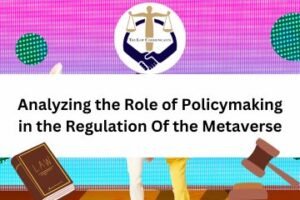Explain Legal Disability under Limitation Act, 1963. Who can get the benefit of legal disability? How does legal disability effects on the period of limitation?
Statutes of limitations are designed to aid defendants. A plaintiff, however, can prevent the dismissal of his action for untimeliness by seeking to toll the statute. When the statute is tolled, the running of the time period is suspended until some event specified by law takes place. Tolling provisions benefit a plaintiff by extending the time period in which he is permitted to bring suit.
Various events or circumstances will toll a statute of limitations. It is tolled when one of the parties is under a legal disability—the lack of legal capacity to do an act—at the time the cause of action accrues. A child or a person with a mental illness is regarded as being incapable of initiating a legal action on her own behalf. Therefore, the time limit will be tolled until some fixed time after the disability has been removed. For example, once a child reaches the age of majority, the counting of time will be resumed. A personal disability that postpones the operation of the statute against an individual may be asserted only by that individual. If a party is under more than one disability, the statute of limitations does not begin to run until all the disabilities are removed. Once the statute begins to run, it will not be suspended by the subsequent disability of any of the parties unless specified by statute.
Mere ignorance of the existence of a cause of action generally does not toll the statute of limitations, particularly when the facts could have been learned by inquiry or diligence. In cases where a cause of action has been fraudulently concealed, the statute of limitations is tolled until the action is, or could have been, discovered through the exercise of due diligence. Ordinarily, silence or failure to disclose the existence of a cause of action does not toll the statute. The absence of the plaintiff or defendant from the jurisdiction does not suspend the running of the statute of limitations, unless the statute so provides.
The statute of limitations for a debt or obligation may be tolled by either an unconditional promise to pay the debt or an acknowledgment of the debt. The time limitation on bringing a lawsuit to enforce payment of the debt is suspended until the time for payment established under the promise or Acknowledgment has arrived. Upon that due date, the period of limitations will start again.
Section 6 – Legal disability
(1) Where a person entitled to institute a suit or make an application for the execution of a decree is, at the time from which the prescribed period is to be reckoned, a minor or insane, or an idiot, he may institute the suit or make the application within the same period after the disability has ceased, as would otherwise have been allowed from the time specified therefor in the third column of the Schedule.
(2) Where such person is, at the time from which the prescribed period is to be reckoned, affected by two such disabilities, or where, before his disability has ceased, he is affected by another disability, he may institute the suit or make the application within the same period after both disabilities have ceased, as would otherwise have been allowed from the time so specified.
(3) Where the disability continues up to the death of that person, his legal representative may institute the suit or make the application within the same period after the death, as would otherwise have been allowed from the time so specified.
(4) Where the legal representative referred to in subsection (3) is, at the date of the death of the person whom he represents, affected by any such disability, the rules contained in sub-sections (1) and (2) shall apply. (5) Where a person under disability dies after the disability ceases but within the period allowed to him under this section, his legal representative may institute the suit or make the application within the same period after the death, as would otherwise have been available to that person had he not died.
Explanation.-For the purposes of this section, ‘minor’ includes a child in the womb.
Click here to read the Indian Evidence Act 1872.




